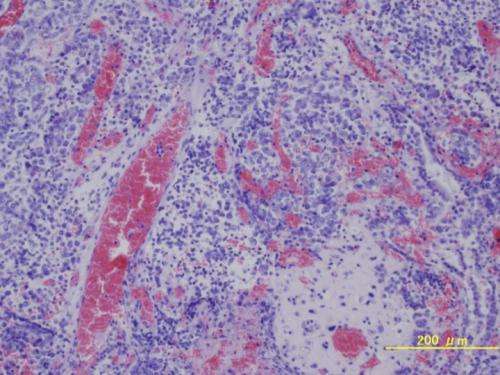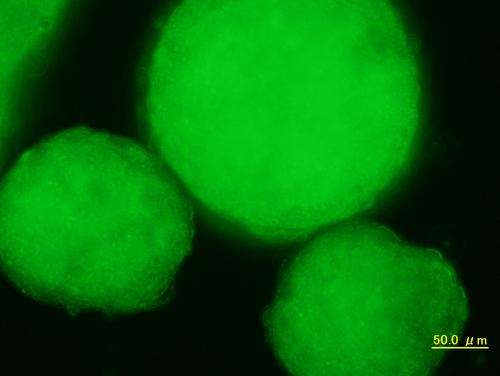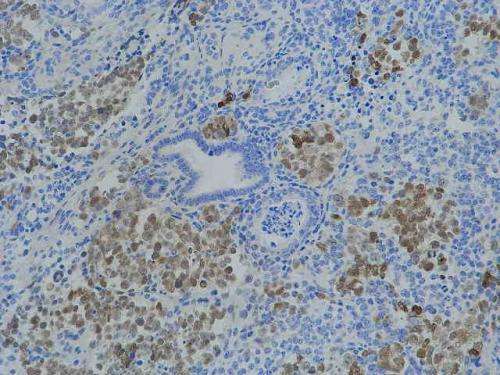Angiogenesis.
Okayama University's Masaharu Seno and colleagues have demonstrated in vitro the development of cancer stem cells (CSCs) from a type of normal stem cell exposed to their hypothetical microenvironment of a tumor.
Cancer stem cells (CSCs) have been proposed as an explanation for the spread of cancer. These cells are tumorigenic and have the capacity of both self-renewal and differentiation into a range of various cell types. In this concept, malignant tumors provide heterogeneous aspects derived from CSCs as well as normal stem cells provide tissue specific phenotype in response to their microenvironment.
Spheroid GFP.
Researchers have now demonstrated in vitro the development of CSCs from a type of normal stem cell exposed to their hypothetical microenvironment of a tumor. The results are the work of a group of scientists led by Masaharu Seno, a professor of Okayama University, with his collaborators in China and the US.
The researchers cultured mouse induced pluripotent stem (miPS) cells in a conditioned medium obtained from a number of mouse cancer cell lines. Finally, a population of stem cells was kept undifferentiated and proliferating while other stem cells differentiated into specialized cells, which were incapable of proliferation any more.
Immunostain.
Since the survived miPS cells treated with the conditioned medium were found malignantly tumorigenic in vivo, they concluded that the cells could be defined as CSCs . "The model of CSCs and the procedure of their establishment will help study the genetic alterations and the secreted factors in the tumor microenvironment which convert miPS cells to CSCs," explain the authors. The work should help breakthrough towards the development of new therapies to combat cancer.
More information: Ling Chen et al., A model of cancer stem cells derived from mouse induced pluripotent stem cells. PLoS One 7, e33544 (2012). DOI: 10.1371/journal.pone.0033544
Journal information: PLoS ONE
Provided by Okayama University





















